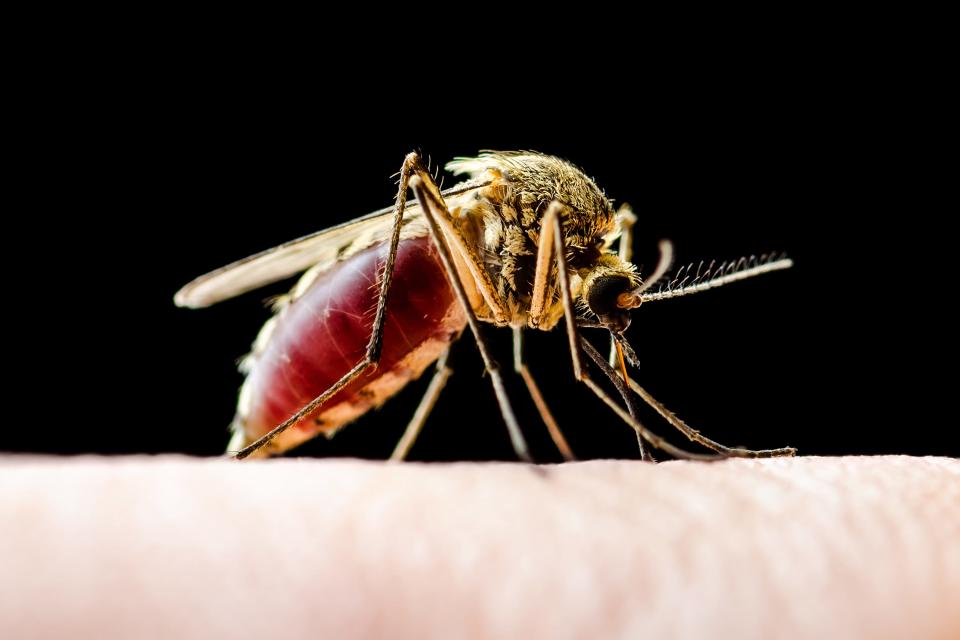Malaria: Your guide to what it is, symptoms, protection
In late June 2023, the Texas Department of State Health Services was notified of a Texas resident diagnosed with malaria who had not traveled outside the country or state.
The resident lives in Cameron County near the border. The county's public health department followed up on the case to determine if other people were exposed, but no other malaria cases have been identified so far.
Aside from the sole Texas case, Florida has reported six in the past two months.
What is malaria?
Malaria is a serious, and potentially fatal, disease caused by a parasite that can be transmitted through the bite of a mosquito.
Nearly all cases of malaria in the United States are imported — occurring in people who traveled to or were coming from countries with ongoing malaria transmission.

According to the Texas Department of State Health Services, there are an average of more than 120 travel-related malaria cases annually. The last locally acquired Texas case occurred in 1994.
In Corpus Christi, there have been four cases of malaria since 2010. All four were acquired out of the country.
How is malaria spread?
Malaria is not a contagious disease, meaning it cannot be transferred from person to person like a cold or the flu.
Normally, people get malaria after being bitten by an infective mosquito.
When a mosquito bites an infected person, a small amount of blood is taken, which contains microscopic malaria parasites. About one week later, when the mosquito takes its next blood meal, the parasites mix with the mosquito's saliva and are injected into the bitten person.
Because the malaria parasite is found in red blood cells of an infected person, malaria can also be transmitted through blood transfusions, organ transplants or the shared use of needles or syringes contaminated with infected blood.
Malaria may also be transmitted from a mother to her unborn infant before or during delivery.
What are the signs and symptoms of malaria?
The most common signs and symptoms of malaria include a fever, shaking chills, sweats, headache, body aches, nausea and vomiting.
Symptoms typically show within one week to 30 days after infection.

Without treatment, malaria can be life-threatening and can cause disorientation, seizures, low red blood cell counts, acute respiratory distress syndrome and kidney damage.
What protocols will the Corpus Christi-Nueces County Public Health District take if a case if found locally?
Public health director Fauzia Khan said if a person in the county or city is suspected of having symptoms consistent with malaria, they would be recommended to see their healthcare provider of visit the emergency room for further testing and investigation.
"The Corpus Christi-Nueces County Public Health District would work alongside the Texas Department of State Health Services (DSHS) to provide insight relating to the investigation," Khan said. "If the person is diagnosed with malaria, in collaboration with one of our local hospital systems, they would need to undergo treatment with prescription drugs."
How can I protect myself from getting the disease?
Khan said she had several recommendations for protection against malaria:
Apply insect repellent that contains DEET. Spray clothing and exposed skin with the repellent and be sure to read the instruction label.
Dress in long sleeves and long pants when you are outside.
Sleep under mosquito netting, bed nets.
Treat clothes and bed nets with permethrin — a medication and insecticide.
Treat living areas, particularly if staying in quarters that are not air-conditioned or do not have window screens, with pyrethroid-containing flying inspect spray.
RELATED COVERAGE
More: Summer heat: Record temps in Corpus Christi and how to battle warm weather
More: Operation Health & Wellness offers free health services in Nueces County
John Oliva covers entertainment and community news in South Texas. Contact him at john.oliva@caller.com or Twitter @johnpoliva.
Consider supporting local journalism with a subscription to the Caller-Times.
This article originally appeared on Corpus Christi Caller Times: Your guide to malaria, symptoms, protection

